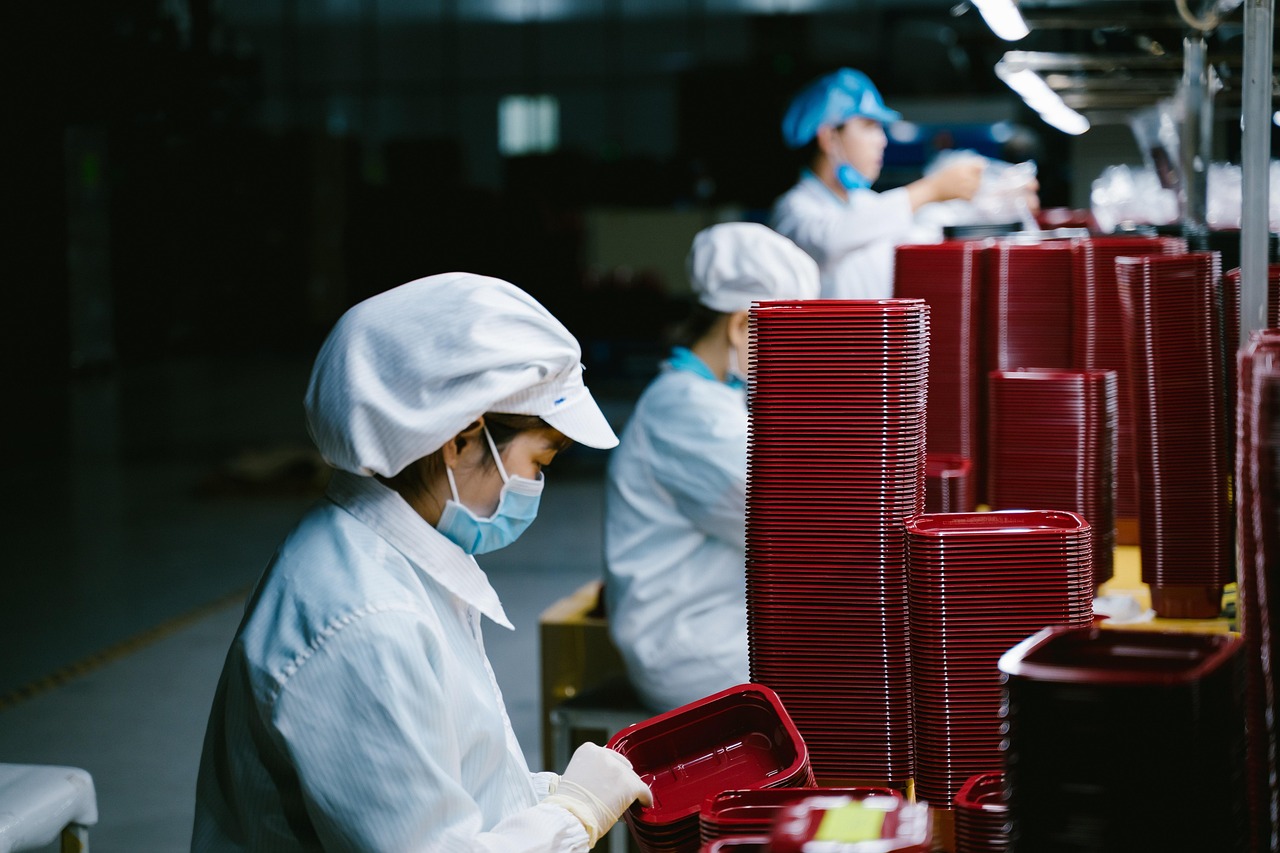A Day in the Life of a Food Packer: Key Responsibilities and Skills
Working as a food packer is an essential role in the food production process. From ensuring products are securely packaged to maintaining quality standards, discover how food packers contribute to the safety and freshness of food. Learn about the skills needed and the positive impact this job has on the industry.

The food packing occupation represents a significant segment of the food production workforce. Individuals in this role perform essential tasks that ensure food products are properly prepared, packaged, and ready for distribution to retailers and consumers. The work requires adherence to rigorous hygiene protocols and quality standards that protect public health.
Food packing work environments vary widely, from small-scale processing facilities to large industrial operations. Regardless of setting, the core functions remain consistent: ensuring products are handled safely, packaged correctly, and meet established quality benchmarks. This occupation demands both physical capability and mental focus throughout the workday.
What Are the Key Responsibilities of a Food Packer?
The responsibilities associated with food packing encompass several critical functions. Workers in this role typically sort, weigh, and measure food items according to predetermined specifications. They place products into containers, boxes, or wrapping materials designed to preserve freshness and prevent contamination during transport and storage.
Sealing and labeling constitute another major aspect of the work. Food packers operate equipment that seals packages and apply labels containing essential information such as product identification, weight, ingredients, and date coding. These details serve regulatory compliance purposes and provide consumers with necessary product information.
Quality inspection forms an integral part of daily responsibilities. Workers examine products for visible defects, foreign materials, or signs of spoilage before packaging. Items failing to meet quality criteria are removed from the production line. Equipment maintenance also falls within the scope of responsibilities, as workers must ensure machinery functions properly and report any malfunctions that could affect production or safety.
Workspace sanitation represents an ongoing duty. Food packers clean and sanitize work surfaces, tools, and equipment regularly throughout their shifts. They follow waste disposal protocols and maintain organized storage of packaging materials. Documentation of production quantities, quality checks, and any irregularities may also be required depending on facility procedures.
What Skills Are Required for Food Packing Roles?
Food packing work requires a specific set of physical and cognitive abilities. Physical stamina is fundamental, as the work often involves extended periods of standing, repetitive motions, and handling packages of varying weights. Manual dexterity enables workers to handle products carefully and operate packaging equipment with precision.
Attention to detail stands as perhaps the most critical skill in this occupation. Workers must consistently monitor product quality, verify accurate labeling, and identify any anomalies that could compromise safety or quality standards. The capacity to follow detailed instructions and procedures precisely is equally essential, given the regulated nature of food production.
Time management abilities help workers maintain productivity while upholding quality standards. Food production facilities typically operate on structured schedules with specific output targets. Basic mathematical skills support tasks involving counting, weighing, and data recording. Teamwork and communication skills facilitate coordination with colleagues and enable effective reporting to supervisors when issues arise.
Why Is Food Packaging Important in the Industry?
Food packaging fulfills multiple critical functions within the food production and distribution system. It provides physical protection against damage, contamination, and environmental factors that could compromise product integrity. Packaging materials create barriers against moisture, oxygen, and light exposure, which can accelerate spoilage and reduce shelf life.
Information communication represents another vital packaging function. Labels convey nutritional data, ingredient lists, allergen warnings, preparation instructions, and regulatory compliance information. This transparency enables consumers to make informed decisions and helps individuals with dietary restrictions or allergies identify suitable products.
From a supply chain perspective, packaging facilitates efficient handling, storage, and transportation. Standardized packaging dimensions optimize space utilization in warehouses and delivery vehicles. Barcodes and tracking codes enable inventory management and traceability throughout the distribution network. The work performed by food packers directly impacts these functions by ensuring packaging is executed correctly and consistently.
How Do Food Packers Ensure Quality and Safety?
Quality and safety protocols form the foundation of food packing operations. Workers adhere to comprehensive hygiene standards, including the use of protective equipment such as gloves, hairnets, face masks, and clean uniforms. Hand washing protocols are strictly observed, and personal hygiene standards are maintained to prevent contamination risks.
Visual inspection occurs continuously throughout the packaging process. Food packers examine products for foreign objects, structural defects, or signs of deterioration. They verify that items meet specified weight and dimension requirements and confirm that packaging materials are undamaged and appropriate for the product type. Temperature monitoring is particularly important for perishable items that must remain within defined temperature ranges to maintain safety.
Many facilities implement checkpoint systems where workers verify their output meets quality standards before products advance to subsequent stages. Training programs covering food safety regulations, proper handling techniques, and emergency procedures are standard in the industry. This systematic approach to quality and safety helps prevent foodborne illness and ensures consumers receive products that meet established standards.
What Are the Positive Aspects of Working in Food Packing?
Food packing work offers certain characteristics that may appeal to individuals seeking employment in the manufacturing sector. These positions generally have accessible entry requirements, often not requiring extensive prior experience or advanced education. Many employers provide training to new workers, allowing skill development while working.
The food production industry maintains relatively consistent operational demand due to the ongoing need for food processing and distribution. This can translate to employment stability compared to more cyclical industries. Shift variety is common, with facilities operating across different time periods, which may accommodate diverse scheduling needs.
Experience in food packing can serve as a foundation for progression within the food manufacturing sector. Workers may develop expertise that leads to roles in quality control, equipment operation, or supervisory functions. The skills acquired, including attention to detail, adherence to safety protocols, and time management, have applicability across various industries and occupational contexts.
The work provides a tangible connection to an essential industry. Food packers contribute to the process that delivers safe, properly packaged food products to communities. For individuals who prefer structured, task-focused work environments with clear procedures and expectations, food packing represents a straightforward occupational option.
Conclusion
Food packing represents an essential function within the food production and distribution system. The work encompasses responsibilities ranging from product inspection and packaging to equipment operation and workspace sanitation. While the occupation involves physical demands and repetitive tasks, it provides accessible entry into the food manufacturing sector with opportunities for skill development. Food packers play a meaningful role in maintaining food safety and quality standards that protect public health. Understanding the realities of this work, including the skills required and the nature of daily tasks, offers valuable perspective on this foundational industry occupation.




